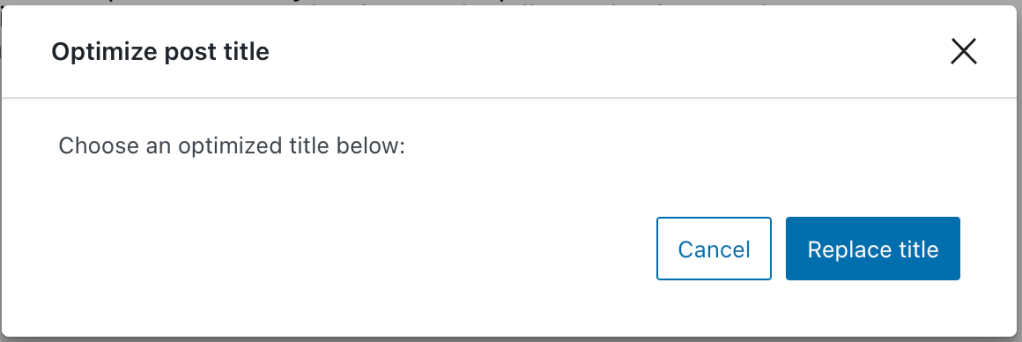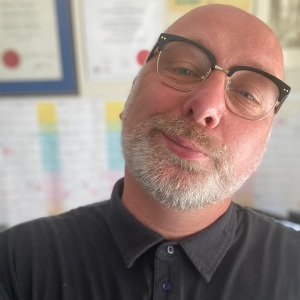OCLC’s Melbourne office are advertising for a Customer Project Manager to help implement their library management system.
Now, I used to work for OCLC, but I don’t any longer. So this is not an official statement.
But… now is an excellent time to apply for jobs you’re interested in, even if you don’t meet all the selection criteria.
Because employers are desperate. There’s a worker shortage. Employers aren’t getting the number of applicants for vacancies that they used to. They’re having to hire workers with less experience than they were looking for, and then train those workers up.
That’s hard for employers. But it’s a great opportunity for you.
Why you have a chance
Let me reiterate: I do not work for OCLC. I have no special insight into this vacancy.
But I’ve hired lots of people in past. And I recently was part of the interview panel for a vacancy at my current work place. And two things became very clear to me.
Firstly: there are not many qualified applicants for roles at the moment. That means iff you apply, there’s a good chance you will be interviewed.
Secondly: some of the applicants we did interview wrecked their chances because they couldn’t answer basic questions about the role, or their experience.
This sucks for the applicants, and is a waste of the employer’s time.
But it means that if you put some effort in and do some preparation, you can make your application really stand out, even if you don’t meet all the selection criteria.
So here’s my advice on how to improve your chances of landing a job when you don’t meet all the criteria. I’ve included examples in italics to help clarify what I’m saying.
Step 0: Think like an employer
Vacancies are a problem for employers. It means work isn’t getting done, or staff are having to work extra hard to cover the gap.
In their ideal world, they would hire someone who has the exact skillset they need, someone who can be plugged in and start doing the job straight away without any training or guidance.
But this is never going to happen.
The next best option is to hire someone who is motivated, enthusiastic, has at least some of the requried skills, and is willing to learn the rest.
Your job is to show the employer that that someone is you.
Step 1: Do your research
Employers want to know you actually understand and are interested in the job you’re applying for. Some basic research can help you demonstrate this.
Who is the organisation? Go to their website. Have a look at their products or services. Watch their videos. Look at who their customers are. How do those products make their customers lives better? Is there anything interesting or exciting about the organisation that grabs you?
What is the role? Google the job title to get an idea of the typic duties and responsibilities. How does it help the customers? How does it help the company? What sort of work is it?
EXAMPLE: Looking at OCLC’s website, I can see that…
- OCLC is a global library organization that provides “shared technology services, original research, and community programs for its membership and the library community at large.”
- Their products include WorldShare Manaagement Services, EZproxy and GreenGlass
- The benefit these products provide is to improve library efficiency
- They’ve recenty released a new WorldCat.org. Clicking through to the information page tells me WorldCat.org is “the only site where anyone can explore billions of items from a global network of thousands of library locations in a single search.”
Doing some quick research on project management:
- Project managers are responsible for ensuring all the tasks in a project are completed on time and to the approriate quality
- They usually have to collaborate with a wide variety of other people, so good communication skills are important
- There are two main methods of organising a project: the waterfall method, and Agile.
Step 2: Call the employer up
Most job ads include a contact phone number or email address in case you have questions. My experience is that it’s pretty rare for applicants to actually use this.
Which means if you do call them, the employer is more likely to remember your name.
Call them. Explain you’re interested in apply for the position. Ask them for more details about the role.
And then ask them if they’d consider your application even if you don’t meet all the selection criteria. Discuss with them how you might fill in those gaps in your skillset. Bring your ideas, and ask them for theirs.
Some example questions:
“Hi! I’m interested in applying for the Customer Project Manager position you’ve advertised. Can you tell me anything more about the duties of this role? Is there a guide to the implementation process that I could read, for example?”
“Would you consider my application even if I don’t meet all the selection criteria? I don’t have years of project managment experience. I’ve been doing some research and I think that’s something I could learn with some online training, and maybe some mentorship. What are your thought?”
Step 3: Write a strong cover letter
Your cover letter is your best chance to argue the case for them interviewing you. Keep it short. A good format is:
- First paragraph: one sentence explaining which role you’re applying for, and where you saw the ad.
- Second paragraph: one or two sentences explaining why you’re interested in this role.
- Third paragraph: A sentence starting with “I can offer you…” followed by your best three or four qualifications for the role. (I usually put these as dot points, to make it easier for busy employers to read them.)
- Fourth paragraph: a sentence or two acknowledging the areas where you don’t meet the critera, and explain how you’d overcome that if you got the job.
- Fifth paragraph: wrap it up politely.
Example cover letter:
Dear OCLC,
I am writing to apply for the position of Customer Project Manager that was advertised on your website.
I am applying for this position because I believe libraries play an important role in sharing knowledge, and by helping libraries implement your products, I would be helping them become more efficient.
I can offer you:
- A graduate diploma in library information science from Blatherburg University
- Two years experience working in the Blatherburg Public Library as a junior systems librarian
- Experience using and configuring library management systems such as Sierra
- Experience running our recent project to implement a new self-check mobile phone app
I acknowledge that I do not have the years of experience in project management that you are looking for. But I believe that this is a skill I can acquire with a combination of online training and mentorship from experienced staff.
I hope to hear back from you soon.
Yours,
Hopeful Applicant.
Step 4: Prepare for the interview
There are some standard questions you should expect in an interview. So you can think about what your answers will be ahead of time.
Use examples of your past work in your answers. And use the biggest, most complex and most difficult tasks you’ve done as your examples. The employer is trying to judge your skill level, so talk about your best work.
And you can bring notes with you to the interview. Don’t read out prewritten answers, but having some dot points to help jog your memory is fine.
Common questions you can expect include:
Why are you interested in this job?
This is often a warm-up question. Answer with your personal qualities that match the requirements of the job, and a ‘big picture’ statement of the value that role provides.
“I enjoy detailed-focused work, and I enjoy helping libraries operate more efficiently.”
Can you tell us about a project you’ve managed?
Obviously, employers will only ask this question for project-related roles.
What they’re looking for is evidence that you understand the goal of the project, that you used a clear methodology to ensure the project stayed on track, that you used logical thinking to overcome any problems you encountered, and that ultimately the project was successful.
So make a note of the answers to these questions:
- What was the goal of the project?
- What methods did you use to ensure the project stayed on track?
- What problems did you encounter? How did you solve them?
- What was the outcome of the project?
And if you don’t have any experience running projects? Get thee to Google, and do some research. If nothing else, it will show you’re motivated enough to try and understand the position.
How do you communicate with people of different levels of technical knowledge?
Communicating with people is a big part of project management. And not everyone has a lot of technical knowledge.
If you have experience, make some notes about how you managed this, what worked well and what you’d do differently in the future.
If you don’t have experience, do some googling and at least understand the theory.
Do you have any questions for us?
Of course you do. Not only is this a chance for you to learn more about the job, it’s another chance to show that you’re genuinely interested in the position.
Some questions you could ask are:
- What sort of training is available if I get the job?
- What does a typical day in this role look like?
- What are the big challenges facing this organisation?
- What’s the best thing about working for this organisation?
- How does this organisation help staff balance work and their personal lives?
Conclusion
This is a good time to be looking for work. There are a lot of vacancies, and not many applicants. Which means employers are considering applicants who may not have all the skills that employers were hoping for.
So it’s a good time to be looking for work, and a good time to apply for jobs that are the next step up for you in terms of duties and pay.
Finally I want to say: I used to work for OCLC, and I loved it there.
It was such a great learning experience to be part of an international company, and to work with such a wide variety of libraries. I only left because my career goal was alway to work in a library, not with them.
This Customer Project Manager role is a great opportunity for any aspiring systems librarian to learn a lot about how library managment systems work and are configured.
I hope this advice helps you find a job you love.



